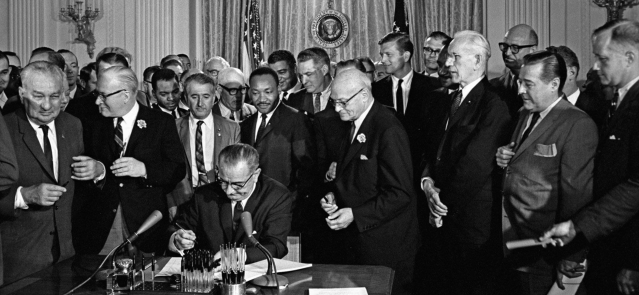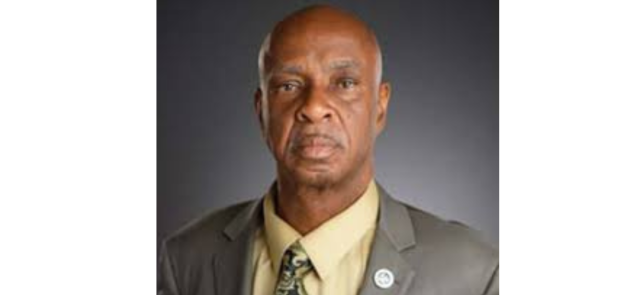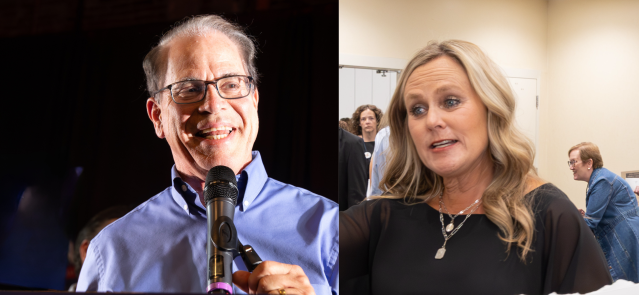EVANSVILLE, Ind. — Why do we call it the “American experiment”? This phrase captures the tentative, evolving nature of our democracy, reminding us that what we have built is not guaranteed but continually tested. The Founders, in their wisdom, recognized the inherent fragility of a system reliant on the collective will and moral fortitude of its citizens.
They envisioned a republic where power is derived from the people and civil discourse replaces the violence of autocratic rule. This experiment, audacious in its scope, is perpetually on the brink of failure or renewal, dependent on our adherence to its principles.
The recent assassination attempt on Donald Trump underscores the precariousness of this grand experiment. The image of Trump, blood tracing a red path down his face, defiantly pumping his fist into the air after being grazed by a bullet or glass from a shattered teleprompter, offers a tableau both disquieting and emblematic of our times. It forces us to reflect deeply on how violence has insidiously infiltrated our political discourse and what it means for the future of our democratic ideals.
Historically, America has prided itself on a democratic process that, while often contentious, refrains from violent confrontation. The Founders envisioned a nation where disputes were settled through reasoned debate, the ballot and the rule of law.
In reality, however, a shocking 17% of U.S. presidents have now been shot in their lifetime — half of them lethally. The sight of a bloodied Trump rallying his supporters with an indomitable gesture suggests a creeping normalization of violence as a political tool. It is a moment that demands we reassess our commitment to nonviolent political engagement and the very essence of our democratic ethos.
The aftermath of the assassination attempt, with the image of Trump defiantly raising his fist, offers us a moment of profound reflection. This is more than a snapshot of resilience or defiance; it is a mirror reflecting the soul of our republic. How we choose to interpret this act will shape the trajectory of our democracy.
Trump’s gesture can be seen as a testament to the indomitable spirit of a leader who, despite facing mortal danger, stands unyielding. It is an image that can evoke admiration for his resolve to carry on in the face of violence, a symbol of strength that rallies those who believe in the durability of our democratic institutions. In this light, his raised fist becomes an emblem of fortitude, a declaration that our political discourse, no matter how fraught, will not be cowed by acts of aggression.
However, there lies an alternative interpretation — one that sees in that defiant fist a harbinger of retributive violence. This view fears that such a display might stoke the fires of division, encouraging a cycle where violence is met with violence and our democratic principles are further eroded. The American experiment, fragile and enduring, requires us to choose carefully which path we will follow.
Ultimately, the power of this moment lies in its ambiguity. It is a call to all of us to reaffirm our commitment to peaceful democratic traditions, to ensure that our response to violence is not one of escalation but of resolution. Trump’s raised fist, then, is not merely his gesture; it is a reflection of our collective conscience and the values we choose to uphold in these trying times.
The American experiment demands our vigilance. It requires us to interpret symbols with care and to choose actions that reinforce the foundations of our democracy. Trump’s gesture, then, is a canvas upon which we paint our collective future, a test of how we respond to the provocations that seek to challenge our most cherished values.
Yet, amid this reflection, there is a profound source of hope. The American spirit has always been resilient, capable of withstanding the most severe trials. From the Revolution to the Civil War, from the Great Depression to the Civil Rights Movement, we have faced moments of great peril and emerged stronger. This moment, too, can be one of renewal.
Our nation’s history is not a tale of unbroken triumph but a series of redemptive arcs where adversity becomes a crucible for moral and civic growth. We have the opportunity to recommit ourselves to the principles that define us: liberty, equality and justice. By fostering a culture of respect and dialogue, we can transform this period of tension into one of growth and unity.
The strength of our democracy lies not in the absence of conflict but in our ability to resolve it through peaceful means and mutual understanding. The sight of a bloodied Trump, resolute and unbowed, reminds us the American experiment is not a fragile project teetering on the brink of failure but a robust and dynamic democracy, capable of renewal and growth.
Let us seize this moment to reaffirm our commitment to a more perfect union, ensuring the spirit of liberty and justice endures for generations to come. The future of our republic rests on our shoulders and, in our collective hands, we hold the power to shape it into a beacon of hope and strength for all who cherish freedom.
Joshua Claybourn is an attorney and author in Evansville, Indiana. Visit him at JoshuaClaybourn.com.



